Gaza's hospitals treating emergency cases only as fuel runs low
- Published
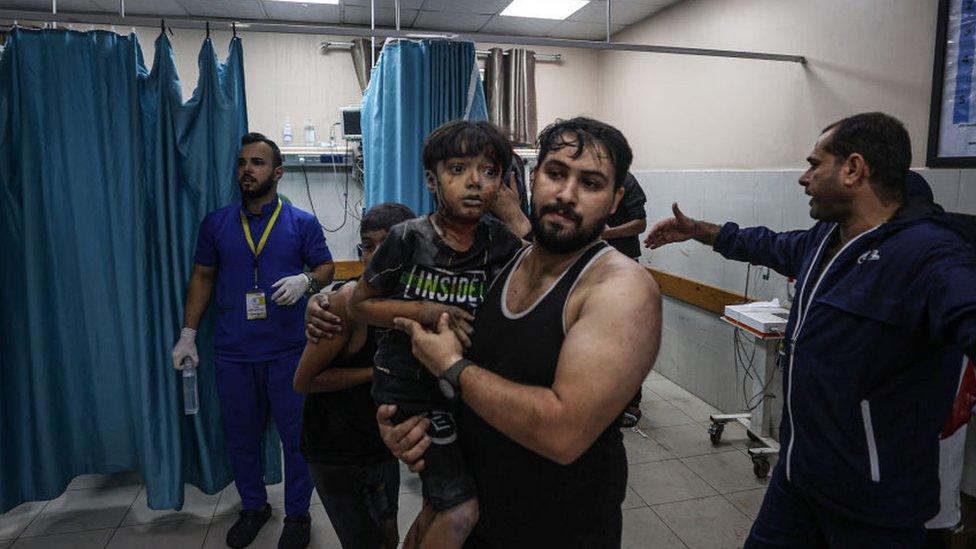
Aid agencies warn people will die if life-saving medical equipment in hospitals stops working because of fuel shortages
Hospitals in the Gaza Strip are taking emergency cases only, the UN says, amid fears fuel supplies will run out across the territory in the coming hours.
UN facilities are also overwhelmed by 600,000 displaced Palestinians seeking shelter - four times their capacity.
The Hamas-run health ministry in Gaza meanwhile says that more than 700 people have been killed by Israeli air strikes for a second day in a row.
Israel's military says it is targeting Hamas fighters and infrastructure.
It launched a bombing campaign against Hamas - which Israel, the UK, US and other powers class as a terrorist organisation - in response to an unprecedented cross-border assault on 7 October in which at least 1,400 people were killed and 222 others were taken hostage.
Israel is also blocking new fuel deliveries to Gaza, saying they could be stolen and exploited by Hamas for military purposes. It accuses Hamas of stockpiling hundreds of thousands of litres of diesel and refusing to share it.
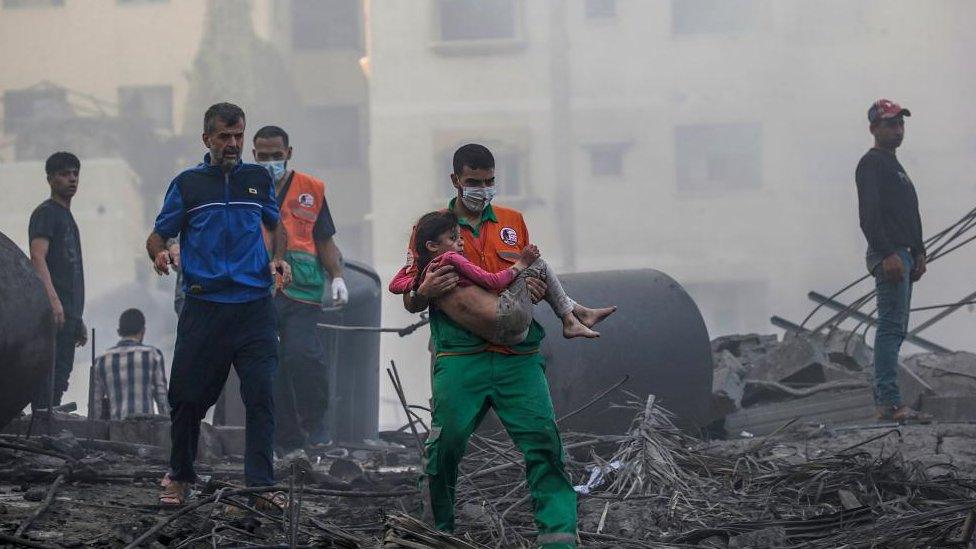
Gaza City, in the north, was targeted by Israeli air strikes on Wednesday
The BBC's Rushdi Abu Alouf, who is at the main hospital in Gaza's southern city of Khan Younis, says hospitals across the territory shut down all departments except for their emergency rooms on Wednesday.
He says this is to conserve fuel needed to power life-saving equipment, such as ventilators, neonatal incubators and kidney dialysis machines.
"The hospitals are in a state of complete collapse," Mohammed Abu Selmeya, the head of Gaza's biggest hospital, Al-Shifa, told AFP news agency.
The World Health Organization's representative, Dr Richard Peeperkorn, earlier told the BBC that hospitals supported by the UN agency were running generators "at minimum levels only for life-saving operations".
Israel stopped suppling electricity to Gaza following Hamas's attacks. The territory was left dependent on back-up generators after its sole power station ran out of fuel on 11 October.
Aid agencies and medics inside Gaza warn that more people will die if key equipment stalls without electricity.
The UN agency for Palestinian refugees, Unrwa, which runs the largest humanitarian operation in Gaza, also says it will have to halt all its operations in Gaza on Wednesday night if it does not get more supplies of fuel.

More on Israel-Gaza war
Follow live: Latest updates
Hamas attacks: Israel shows gunmen's bodycam footage to journalists
Explained: What is happening in Israel and Gaza, and why now?

International calls for increased humanitarian access to Gaza have been growing louder, with the 1.4 million people who have fled their homes struggling to find food, clean water and shelter.
At least 60 aid lorries have entered Gaza from Egypt since the weekend, but this provides only a fraction of the needs of people in Gaza. Aid agencies say at least 100 lorryloads of aid are needed every day.
The death toll in Gaza has also risen sharply, with the Hamas-run health ministry reporting that 756 people were killed over the past 24 hours.
It said a total of 6,547 people, including 2,704 children, had been killed since Israel started its retaliatory air and artillery strikes.
The Israeli military said on Wednesday morning that it had continued "wide-scale strikes" across Gaza, targeting Hamas infrastructure, including "terror tunnel shafts, military headquarters, weapons warehouses, mortar launchers and anti-tank missile launchers".
It also said it had struck Hamas's emergency operational apparatus, which it said had set up roadblocks preventing civilians from heading south.
Hundreds of thousands have fled the north of Gaza after the military told them to leave for their own safety ahead of an expected ground invasion.
On Tuesday night, the military said it had targeted a cell of Hamas divers that tried to infiltrate Israel by sea.
Related topics
- Published24 October 2023
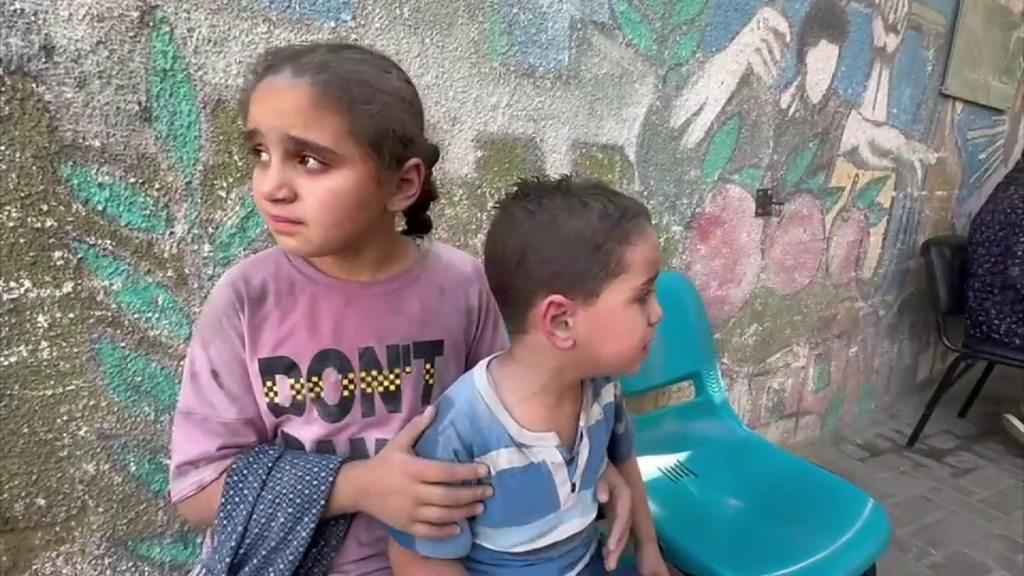
- Published24 October 2023
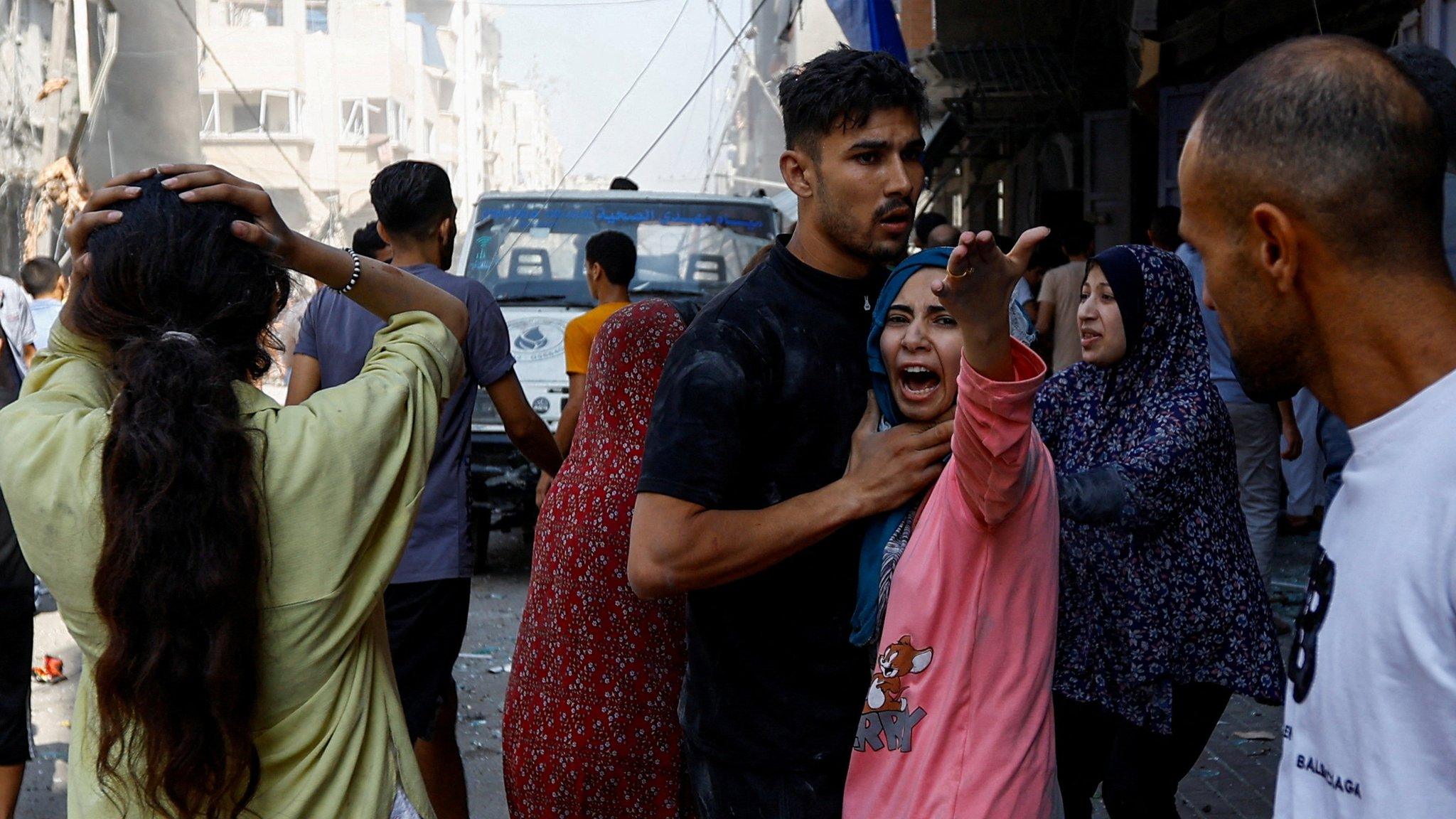
- Published24 October 2023
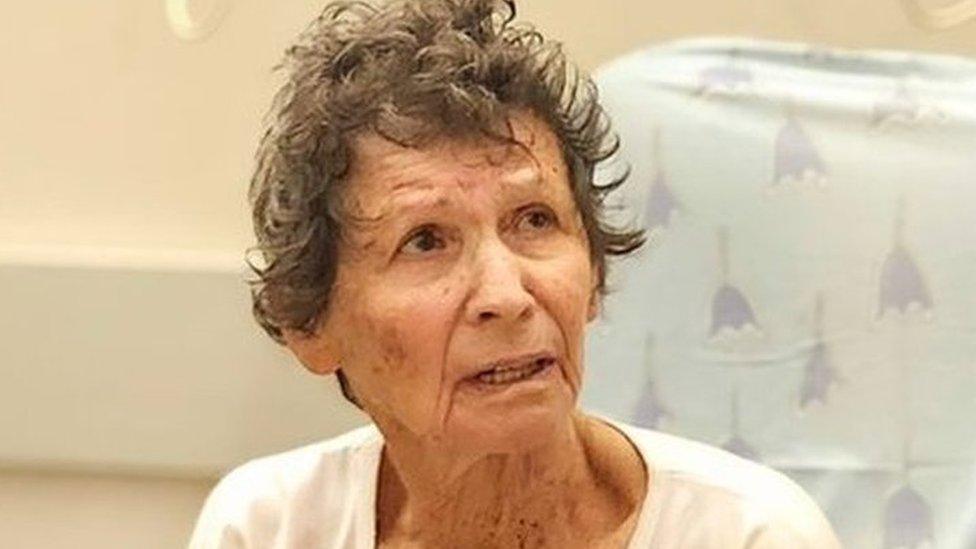
- Published23 October 2023
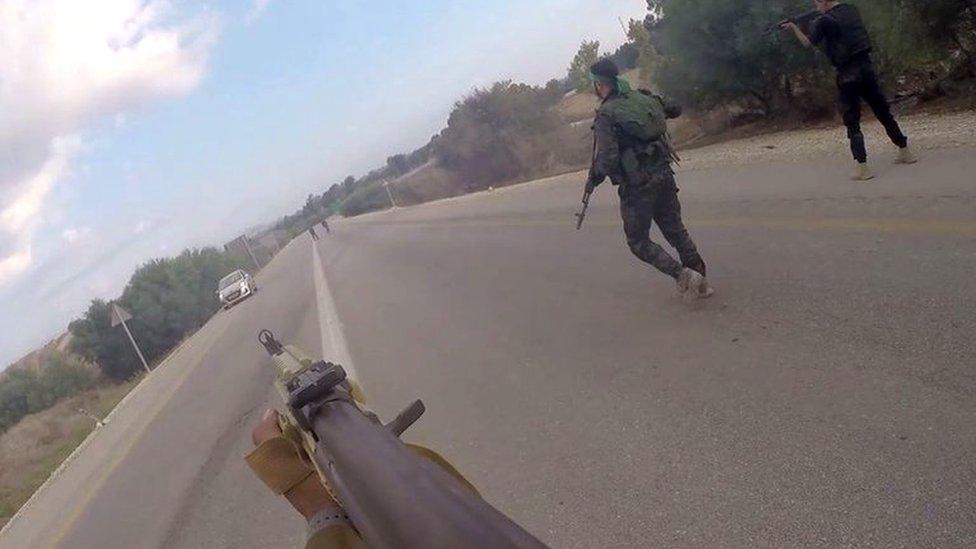
- Published23 October 2023
